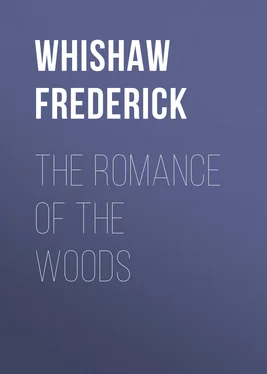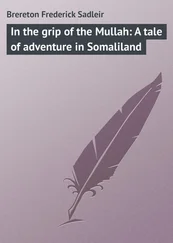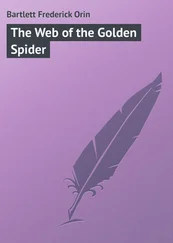Frederick Whishaw - The Romance of the Woods
Здесь есть возможность читать онлайн «Frederick Whishaw - The Romance of the Woods» — ознакомительный отрывок электронной книги совершенно бесплатно, а после прочтения отрывка купить полную версию. В некоторых случаях можно слушать аудио, скачать через торрент в формате fb2 и присутствует краткое содержание. Жанр: foreign_children, foreign_antique, foreign_prose, на английском языке. Описание произведения, (предисловие) а так же отзывы посетителей доступны на портале библиотеки ЛибКат.
- Название:The Romance of the Woods
- Автор:
- Жанр:
- Год:неизвестен
- ISBN:нет данных
- Рейтинг книги:4 / 5. Голосов: 1
-
Избранное:Добавить в избранное
- Отзывы:
-
Ваша оценка:
- 80
- 1
- 2
- 3
- 4
- 5
The Romance of the Woods: краткое содержание, описание и аннотация
Предлагаем к чтению аннотацию, описание, краткое содержание или предисловие (зависит от того, что написал сам автор книги «The Romance of the Woods»). Если вы не нашли необходимую информацию о книге — напишите в комментариях, мы постараемся отыскать её.
The Romance of the Woods — читать онлайн ознакомительный отрывок
Ниже представлен текст книги, разбитый по страницам. Система сохранения места последней прочитанной страницы, позволяет с удобством читать онлайн бесплатно книгу «The Romance of the Woods», без необходимости каждый раз заново искать на чём Вы остановились. Поставьте закладку, и сможете в любой момент перейти на страницу, на которой закончили чтение.
Интервал:
Закладка:
There goes a night-hawk, flitting by in the darkness like a ghost. Oh, what a voice! When he gives tongue I wish the silence back again. Go hence, noisy spirit of night, and hunt your moths elsewhere. No wonder you can scream loudly with a mouth like that, for when you open it your head seems to split in two pieces. There will be no more silence now; the night-jar has murdered sleep. Listen to the sentinel crane—or is it the boots or the chambermaid of the community awakening the family? He screams loudly to them, but they answer drowsily. "Have you not made a mistake in the time?" they are saying. "It cannot, surely, be time to get up yet?" It is though, Madame Crane, and you must quickly let down that other leg and see about the breakfast. In a minute or two there will be such a clamour of conversation among the crane community that any person within a radius of five miles will be aware of their presence. I should say that the cry of the crane is a better traveller than any other sound I have heard. These birds require a good voice for communicating with one another during flight, for a large flock will often separate into many little bands of two or three while on the "march," and the straggling units must be picked up by nightfall. They must have strayed far away indeed if they cannot hear when their friends hail them at the full pitch of the crane-voice!
Now comes another sound. Far away at first, but nearing at each repetition. A sad, melancholy note, falling at intervals of a second or two. I have heard it often before, and wondered what it could be. I have heard it as they who produced it—whoever they might be—passed at night far above the sleeping city, and have felt a great pity for the sad wandering spirits flying and wailing through the darkness—whither? Perhaps they were the souls of the unbaptized, I have thought, which must wander, according to a Slavonic tradition, over land and sea for seven years, seeking and entreating to be baptized.
But Ivan does not allow my thoughts to wander into folk-lore this night. The cranes have awakened him, and he has heard this last mysterious sound also. It has excited him. His finger is at his lip, and he is listening. "What is it, Ivan? Speak!"
"Hush!" says Ivan. "This is what we came for!" (There was a raison d'être for our presence here; I forgot to mention this circumstance before.) "It is the geese!"
So this is the wild geese arriving! Then beat, heart, and strain, eyes, through the darkness, for this is an exciting moment. Not that there is the remotest chance of a shot at them at present; but it is enough if they alight close at hand and tarry, breakfasting, until daylight doth appear. How close the sound seems in the still air, and yet the birds may be a mile away! I can hear the slow, measured beat of their great wings as they approach, a solid phalanx, conversing quietly at short intervals. Surely they are very close indeed? They are all talking at once now. Perhaps they have seen the water and are excited, knowing that their journey is at an end. The beating of their wings seems almost to brush now the topmost boughs of the shalashka . I fancy I can feel a movement in the air, fanned by their big pinions. Thud! There goes the leader; he has alighted. Thud again—and yet again! It is true—they are here; they have come!
To judge from the noises which they are making, there must be a considerable number arrived—thirty or forty. They are chattering to one another happily and sociably, and uttering very different tones from those weird, melancholy cries of theirs while on the wing. They are no longer the lost spirits, the poor wandering unbaptized souls, but a party of merry travellers just arrived, so to speak, at the tavern where a comfortable breakfast is spread all ready for them. They are sure to do justice to it, for this is their favourite feeding-ground—all over this marsh, so Ivan says. It is growing lighter. The conglomeration of sounds of life seems to have startled the Night, and reminded her that she must hurry away and attend to her duties in another hemisphere. She is gradually withdrawing her soft wings—those dark and motherly wings which have guarded so well her little ones for many a long silent hour. Go in peace, Mother Night, for the broad Sun will take good care of your bantlings during your absence. He will open upon them his "good gigantic smile," and they shall laugh and sing and be merry. Already I can catch a pale, sickly gleam of light, where the Waters look up to the grey sky and cry, "How long, Sun, how long the gloom and the cold?"
Be silent, lake, for soon the bridegroom will arrive, and you shall bedeck your waters with gems, and sparkle and glitter in leagues of dancing delight.
The sandpipers are merry and active, and dart from place to place in pairs and companies, whistling and rejoicing; they pass, now and again, so close to me that I can see them, and their whistling seems to come from the very air within the shalashka . And the snipe overhead, he never tires of his lightning-flight and his wheeling; and his "baa" is one of the sounds which continues without ceasing. There is yet another voice—a croak and then a whistle, and the same repeated farther away, and yet again in the distance: a woodcock, I believe, but I cannot see him. He is taking his spring-flight, followed or preceded by his spouse. They will flit across a given space, then alight and dally awhile in pretty courtship, then return the way they came; and so again, da capo .
What are those tall posts yonder, outlining themselves against the paling sky? They are motionless, apparently—no, they move, as I stare through the uncertain light; they shorten, and lengthen, and bend, and dip, and glide slowly forward and bend again: it is the cranes, I am sure of it, for the clamour seems to come from that very spot. But where are the geese? I can hear them but they are still invisible, for they are feeding head down, and show no outline against the sky. Listen! another band of melancholy air-wanderers is approaching—how weird, how pathetic is the sound of their coming! Do they then so hate the trouble of travelling? or is it merely that they have discovered which tone and note of the gamut carries furthest through the ether, and that this happens to be the most doleful of all notes? They are very close now—stay! What is this? are they not going to alight and join the happy breakfast-party below there? Apparently not: they are overhead, they have passed, they have gone on—I can see them; they are travelling in wedge-like formation, a big triangle of beating wings that flog the air with measured sound and slow. How deliberate and yet how swift and powerful is their flight! Why did they not stop here? Their cry was answered from below, and yet they did not pause but continued on their course. Why was the invitation to breakfast not accepted? Who can say what is the etiquette of the wild goose? Perhaps it was not an invitation, but rather an intimation that this place—this tavern—was already occupied by a rival community.
One or two of my former friends take wing and join the other party; no doubt they have some reason for this step, but what that reason is no man may conjecture. Perhaps they are scouts sent forward to find out who these new arrivals are; perhaps they have been badly treated here and have gone over to the enemy in order to "better themselves." Luckily the bulk of the party remain behind, however; and now, in the strengthening light, I can plainly see a body of stout grey fellows waddling about among the yellow grasses and the soaked moss, and feeding in the well-known manner of geese in any field in far-off England. Forty yards, I reckon, separates my shalashka from the nearest goose: one of them may wander nearer—it is worth while to be patient and to allow the light to intensify before hazarding a shot which will disperse every living creature within hearing, and end the delight with which this spring morning is stored.
Читать дальшеИнтервал:
Закладка:
Похожие книги на «The Romance of the Woods»
Представляем Вашему вниманию похожие книги на «The Romance of the Woods» списком для выбора. Мы отобрали схожую по названию и смыслу литературу в надежде предоставить читателям больше вариантов отыскать новые, интересные, ещё непрочитанные произведения.
Обсуждение, отзывы о книге «The Romance of the Woods» и просто собственные мнения читателей. Оставьте ваши комментарии, напишите, что Вы думаете о произведении, его смысле или главных героях. Укажите что конкретно понравилось, а что нет, и почему Вы так считаете.












